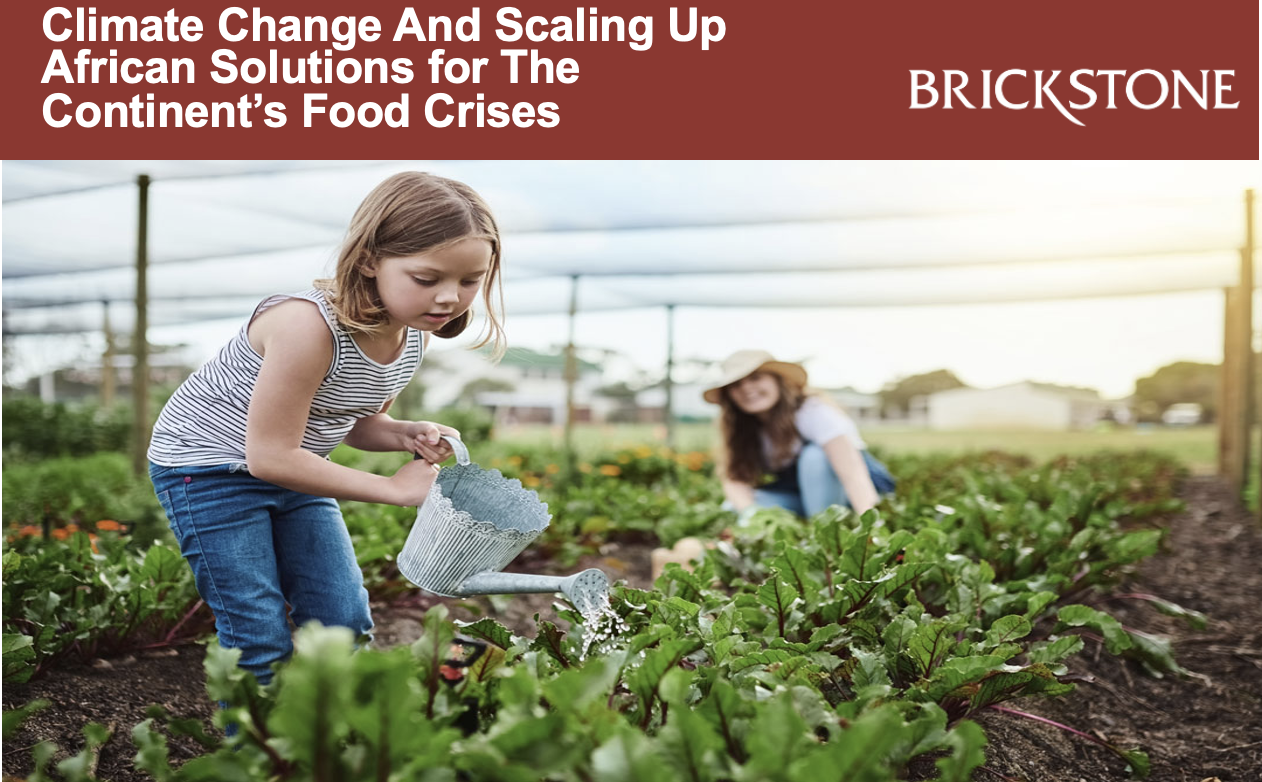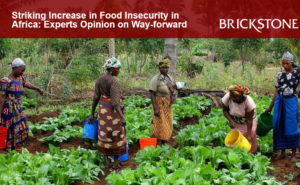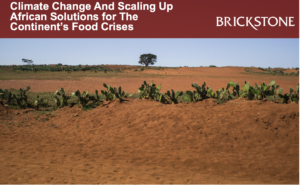Transforming Global Food Systems For Healthy People, Environment, and Economies
According to the FOA of the United Nations, the world is moving backwards in its efforts to end hunger, food insecurity and malnutrition in all its forms. Seven years away from 2030, the distance to reach many of the SDG 2 targets is growing wider each year despite all efforts put in place to reach the goal. The intensification of the major drivers affecting the global food systems (i.e. conflict, climate extremes and economic shocks) combined with the high cost of nutritious foods and growing inequalities will continue to challenge food security and nutrition.
This will be the case until agricultural global food systems are transformed, become more resilient and are delivering lower cost nutritious foods and affordable healthy diets for all, sustainably and inclusively.
This article by Brickstone Africa reviews the World Bank’s publication on the urgency in the need to transform global food systems for healthy people, environment, and economies.
Global Food Systems Amidst Food Insecurity & Growing Population
As the world continues to grapple with the food crisis, we need to remember that this problem didn’t emerge overnight. The war in Ukraine accelerated and triggered more attention to the crisis, but food prices and global hunger were already on the rise even before the war. Climate change, among others, has been a major driver of these worsening trends. Ironically, although global food production has nearly quadrupled between 1961 to 2020 and increased by 50% between 2000 to 2020, more people than ever before are going hungry.
Resolving the situation we face today requires a sharper focus than ever on transforming global food systems to make them more sustainable while feeding a growing global population. A well running food system will help build human capital, lift communities out of poverty, and improve climate resilience.
Instead, our global food system generates an estimated $12 trillion in hidden social, economic and environmental costs each year – including being the source of nearly 1/3 of global greenhouse gas emissions. It also drives consumer choices towards unhealthy foods by keeping healthy food prices too high.
The business-as-usual path is unacceptable. We need a systemic shift in our approach to agriculture and food systems to transform how we produce, transport, and consume food.
The upcoming 2023 Global Forum for Food and Agriculture in Berlin, one of the largest gatherings of agriculture ministers and experts from all around the world, provides an excellent opportunity to discuss options, share experiences, and agree on concerted actions to make food system transformation a reality.
One key shift we need to make is the use of agriculture support. Globally, the support provided to agriculture and food exceeds $700 billion a year. While this support is needed, much of it is poorly targeted – farmers receive only 35 cents of each dollar and support often encourages production practices that are unsustainable.
There are options for governments to repurpose current agricultural support – mostly used for price support, input subsidies and direct payments to producers – and instead use them to implement environmentally friendly policies and incentivize farmers’ uptake of climate smart agriculture practices. Public financing can also be used to help reduce risks of private sector investments that meet higher social and environmental standards. Support can also be used to incentivize new technologies that have already shown promise, such as cattle feed additives that reduce greenhouse gases, or for rice-production techniques that reduce methane emissions.
Adopting appropriate policies would reduce price distortions, promote resilient and sustainable productivity growth, and strengthen value chains. This, in turn, will improve food security and nutrition, bolster farmer incomes, and secure better value for money in public programs.
Another challenge is that the global food systems are highly complex and fragmented. Despite significant increases in output, the system is inefficient and wasteful, with abundance and hunger living side by side. At the heart of these failures is a lack of access to information among farmers and within markets, where inflexible systems promote high transaction costs.
Better use of data and digital technology can help connect the world’s 570 million farms to 8 billion consumers. Data-driven digital agriculture can help improve crop yields, reduce waste, lower costs, and decrease pollution, all of which go a long way in reducing inequality and global hunger.
But there is no one-size-fits-all solution. Each country has its own set of challenges and needs to identify options and strategies to achieve its desired outcomes. Ultimately transforming global food systems to deliver better development outcomes requires country-specific, local analysis – backed by multi-stakeholder dialogues to include all voices in the policy-making process.
Under our Food Systems 2030 program, the World Bank is supporting countries to transform their food systems with the goal to achieve zero hunger by 2030. The program is funded with support from Germany, the UK, the European Commission and the Bill and Melinda Gates Foundation. We are working with 25 countries, seeking country-specific entry points for repurposing agriculture policies and support, creating business models to stimulate private sector financing, promoting climate smart agriculture, applying digital innovations, and strategies to make healthy nutritious diets more affordable.
Read the full publication here.







